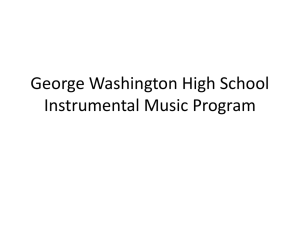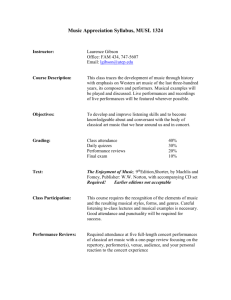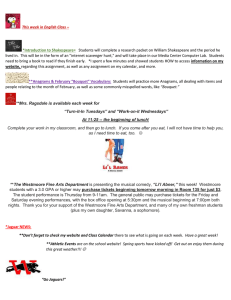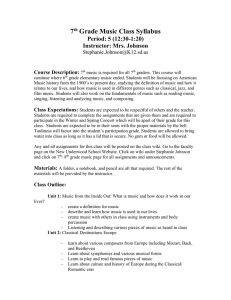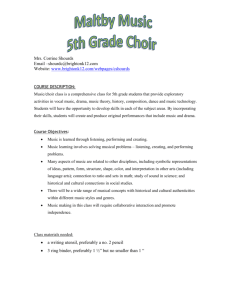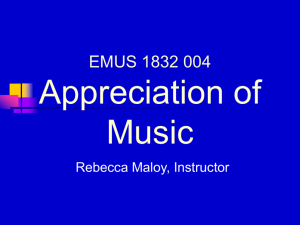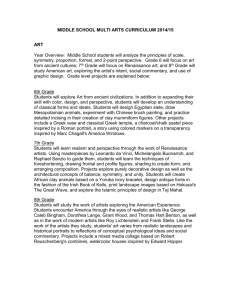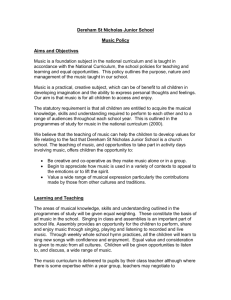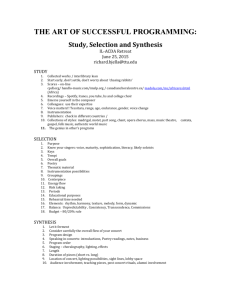EXAM WITH ANSWERS PAAU Practice Examination (Galiza) Read
advertisement
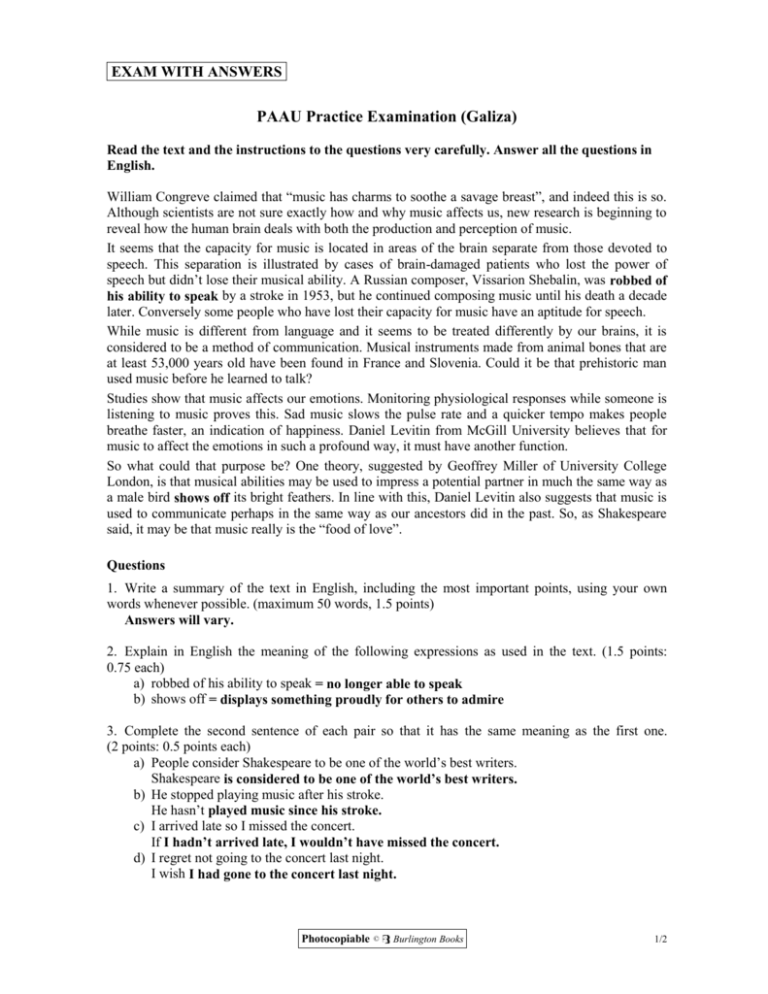
EXAM WITH ANSWERS PAAU Practice Examination (Galiza) Read the text and the instructions to the questions very carefully. Answer all the questions in English. William Congreve claimed that “music has charms to soothe a savage breast”, and indeed this is so. Although scientists are not sure exactly how and why music affects us, new research is beginning to reveal how the human brain deals with both the production and perception of music. It seems that the capacity for music is located in areas of the brain separate from those devoted to speech. This separation is illustrated by cases of brain-damaged patients who lost the power of speech but didn’t lose their musical ability. A Russian composer, Vissarion Shebalin, was robbed of his ability to speak by a stroke in 1953, but he continued composing music until his death a decade later. Conversely some people who have lost their capacity for music have an aptitude for speech. While music is different from language and it seems to be treated differently by our brains, it is considered to be a method of communication. Musical instruments made from animal bones that are at least 53,000 years old have been found in France and Slovenia. Could it be that prehistoric man used music before he learned to talk? Studies show that music affects our emotions. Monitoring physiological responses while someone is listening to music proves this. Sad music slows the pulse rate and a quicker tempo makes people breathe faster, an indication of happiness. Daniel Levitin from McGill University believes that for music to affect the emotions in such a profound way, it must have another function. So what could that purpose be? One theory, suggested by Geoffrey Miller of University College London, is that musical abilities may be used to impress a potential partner in much the same way as a male bird shows off its bright feathers. In line with this, Daniel Levitin also suggests that music is used to communicate perhaps in the same way as our ancestors did in the past. So, as Shakespeare said, it may be that music really is the “food of love”. Questions 1. Write a summary of the text in English, including the most important points, using your own words whenever possible. (maximum 50 words, 1.5 points) Answers will vary. 2. Explain in English the meaning of the following expressions as used in the text. (1.5 points: 0.75 each) a) robbed of his ability to speak = no longer able to speak b) shows off = displays something proudly for others to admire 3. Complete the second sentence of each pair so that it has the same meaning as the first one. (2 points: 0.5 points each) a) People consider Shakespeare to be one of the world’s best writers. Shakespeare is considered to be one of the world’s best writers. b) He stopped playing music after his stroke. He hasn’t played music since his stroke. c) I arrived late so I missed the concert. If I hadn’t arrived late, I wouldn’t have missed the concert. d) I regret not going to the concert last night. I wish I had gone to the concert last night. Photocopiable © Burlington Books 1/2 EXAM WITH ANSWERS 4. Answer the following questions in your own words. (2 points: 1 point each) a) What evidence is there that music was used by prehistoric man? There are musical instruments made from animal bones that are at least 53,000 years old. b) What is Geoffrey Miller’s theory about music? Musical abilities may be used to attract a possible partner. 5. Do you prefer listening to music from your country or from abroad? Explain your answer. (approximately 120 words; 3 points) Answers will vary. PAAU Galiza – The Sound of Music Photocopiable © Burlington Books 2/2
